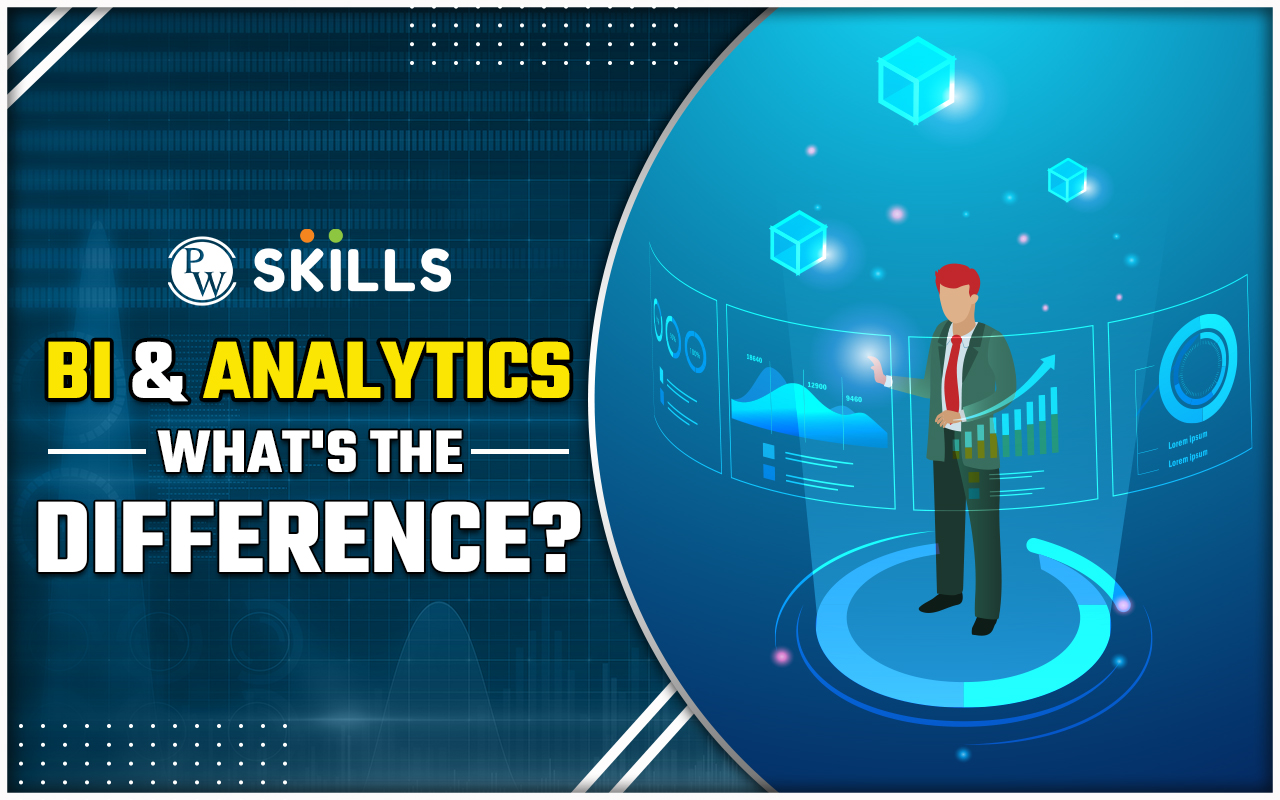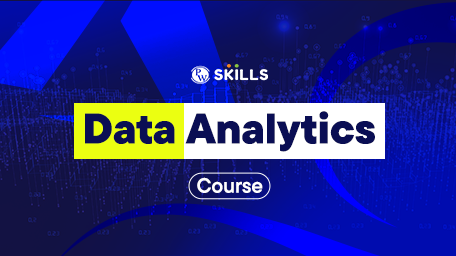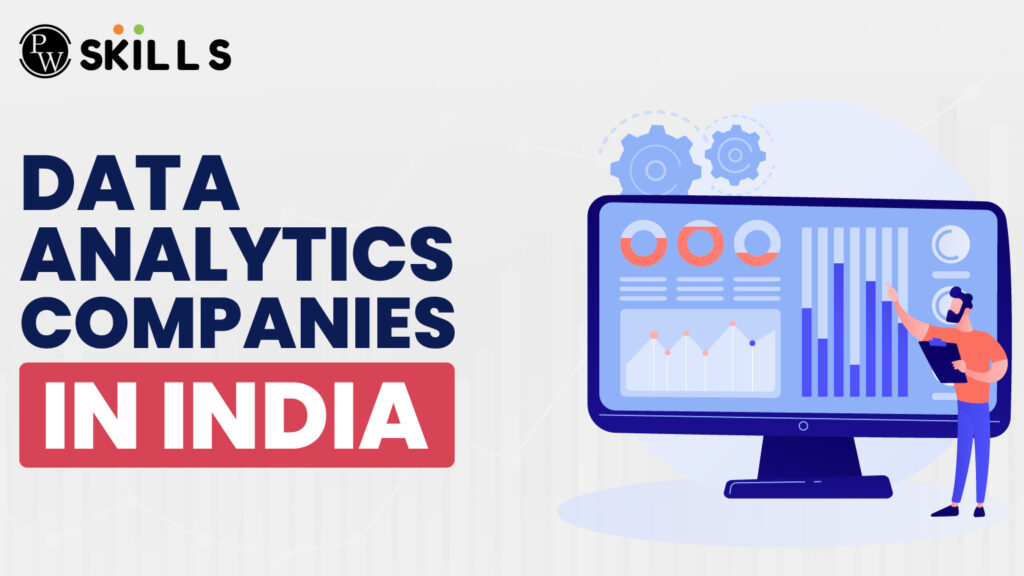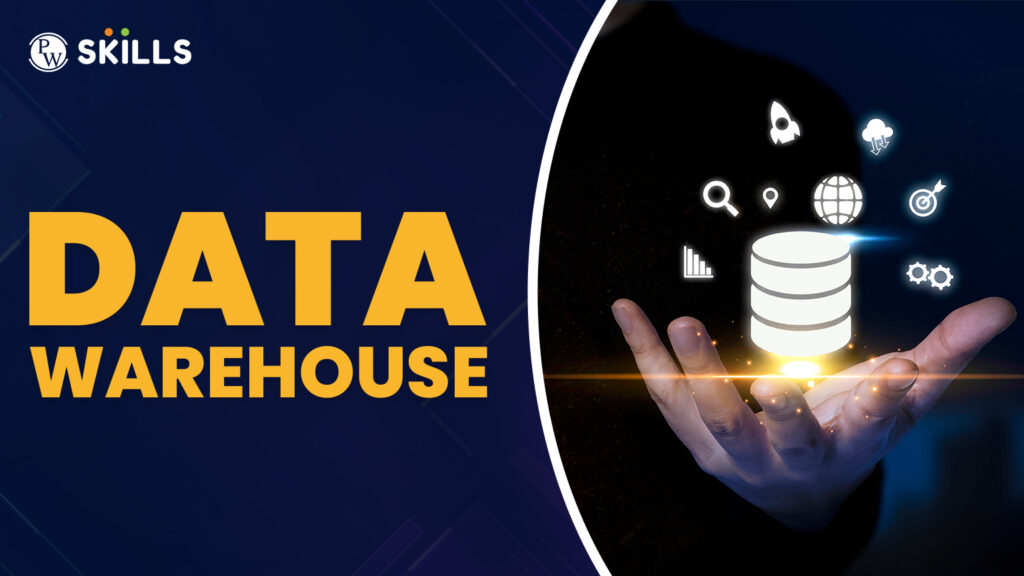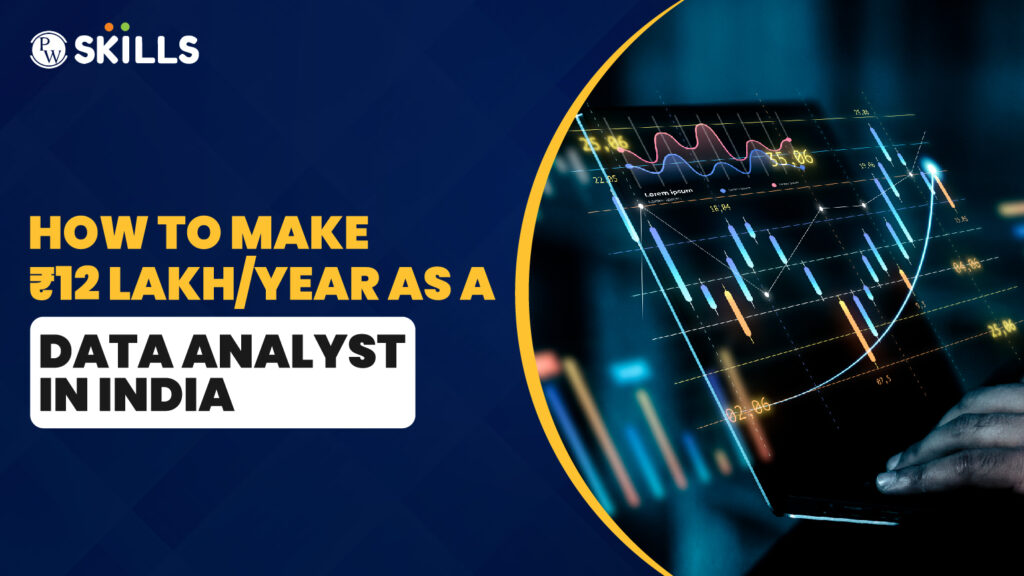BI & Analytics: Everybody has their own opinion when it comes to predicting the difference between business intelligence and analytics. If you are also feeling a bit confused when this question comes to you. Then don’t worry you are not alone in this, many of us are struggling with the same confusion.
In today’s scenario, we need to make quick decisions to get our businesses moving. BI & analytics are two important technologies that make it possible. Let us clear the line between BI & analytics in this article below.
BI & Analytics: Overview
Experts have their own opinions and differences when it comes to defining the major difference between BI & analytics. Business intelligence is more focused on using historical data to be used for business development.
However, in business analytics, we focus more on changing the current scenarios with forecasting. However, the difference between them is very sophisticated. Let us get familiar with the difference between BI & analytics to avoid getting still when the question comes to the forefront.
BI & Analytics: What is Business Intelligence?
Business Intelligence is using advanced tools, technologies, and the right strategies to collect, analyze, and process the available information to make more informative decisions. The process mainly focuses on converting the raw data into meaningful insights to help businesses make more strategic decisions.
BI analyses competitor’s performance and data over time to help companies make better decisions based on the pattern collected. It can provide recommendations based on trends over time.
Read More: What are Analytical Insights: Definition & Best Practices
BI & Analytics: What is Business Analytics?
Business Analytics uses predictive modelling, statistical analysis, data mining, and other major analytical techniques to extract important insights from business data. The business analytics processes are more focused on extracting insights on future events or trends with the help of advanced machine learning algorithms.
There are many activities taken into consideration for finding valuable information such as data exploration, predictive analytics, descriptive analytics, data visualization, machine learning, big data analytics, etc.
Learn Data Analytics with PW Skills
Join our Data Analytic course to learn important aspects of data analysis for effective data collection, processing, and visulaization process. The course will help you learn new and improved tools and technologies to make your work more effective. Learn some important technologies and tools like Numpy, PowerBI, Pandas, Scikit Learn, Excel, MySQL, etc.
Get relevant industry-level projects, practice exercises, doubt sessions, PW Lab access, and 100% placement assistance only on @pwskills.com
Difference between Business Intelligence and Business Analytics: Definition
Business Intelligence: It focuses more on gathering information based on the available data. Business Intelligence is using advanced tools, technologies, and the right strategies to collect, analyze, and process the available information to make more informative decisions.
Business Analytics: Business Analytics uses predictive modeling, statistical analysis, data mining, and other major analytical techniques to extract important insights from business data.
Difference between BI & Analytics: Managerial Role vs Data Analysts
Now the most important conclusion difference between a managerial role and a data analyst is that a manager is responsible for tracking the operations and other processes taking place within the industry. They manage the complete process and use different dashboards and collected data to study and monitor the performance.
However, when it comes to analysts they are responsible for collecting reports, analyzing data from various sources using data analytics tools and technologies, studying competitors, and producing data output based on different data visualisation techniques.
Difference between BI & Analytics: Nature of Analysis
Business intelligence is based on descriptive analysis analyzing and studying reports to understand what took place and how to use the available information to make more strategic and planned decisions.
However, business analytics is a broader scope of business. It focuses on descriptive analysis, predictive analysis, prescriptive analysis, and diagnostic analysis using different tools and technologies to make a proper report.
- Predictive analysis: Focus on predicting what is likely to happen.
- Descriptive analysis: What happened till now?
- Prescriptive analysis: What should be done about it?
- Diagnostic analysis: why did it take place?
Difference between BI & Analytics: Data Sources
Business intelligence uses historical or present data to study different parameters required for making strategic decisions for business growth.
Business Analytics uses already available data and even predicts information based on raw and unstructured data. Business Analytics is deep as compared to business intelligence.
It predicts the outcomes using different analysis tools and also suggests actions. Business intelligence’s sole purpose is to monitor and visualize the performance of overall operations taking place in the organization.
Difference between BI & Analytics: Tools and Technologies
Business Intelligence uses different tools for monitoring purposes such as tools for reporting, dashboards, Online Analytical Processing (OLAP), etc.
Business Analytics carries on various processes such as forecasting, trend analysis, optimization, advanced analytics, risk assessments, etc. using various machine learning algorithms, statistical tools, predictive modelling tools, etc.
Read More: 5 BI Business Intelligence Tools You Need to Know
Difference between BI & Analytics: Applications
Business Intelligence has some major applications mentioned below.
- It collects user information based on their click rates, sales, behaviors, and more. The major aim of BI is to find and use the opportunity to grow.
- With the help of modern data virtualisation tools and techniques it is easy to monitor business growth. With the help of filters and tools, it is easy to predict patterns and analyse new trends.
- Reporting is easy and effective with the help of Business Intelligence. The reports prepared using advanced tools can easily be shared which helps to enhance communication and relations with stakeholders.
Some of the major applications of Business analytics are given here below.
- It is used in statistical analysis using different methods such as regression analysis, clustering, classifications, etc.
- Data modelling to analyse the market and predict opportunities.
- Financial analytics using risk management, fraud detection, and financial forecasting. With the help of market trends, pattern recognition, strategizing plans, and forecasting financial outcomes and trends.
- Data can be used to identify and predict factors contributing to employee retention, talent acquisition, and performance management.
- Healthcare analytics with the help of patient data to improve treatment procedures and predict health outcomes. Optimize performance and predict the spread of diseases for faster counter-public health measures.
Recommended Technical Course
- Full Stack Development Course
- Generative AI Course
- DSA C++ Course
- Data Analytics Course
- Python DSA Course
- DSA Java Course
Difference Between Business Intelligence and Business Analytics
BI and analytics are useful for business growth, especially in a data-driven world these technologies help businesses grow and foster. Let us understand some key differences between business intelligence and business analyst methods using the table below.
| Difference between Business Intelligence and Analytics | |
| Business Intelligence | Business Analytics |
| Business Intelligence uses advanced tools, technologies, and the right strategies to collect, analyze, and process the available information to make more informative decisions. | Business Analytics uses predictive modeling, statistical analysis, data mining, and other major analytical techniques to extract important insights from business data. |
| It uses presently available data and helps companies in making informed decisions. | It analyses and focuses on predicting future outcomes based on the actions taken by the organization. |
| It focuses on monitoring overall operations based on the reports and data available. | It focuses on data analysis. |
| It consists of descriptive analysis. | It consists of predictive analytics, prescriptive analytics, descriptive analytics, and diagnostic analytics. |
| The tools and technologies are being used to analyze the company’s performance and compare it with the others competitors. | It focuses on helping companies make better decisions to improve the outcomes. |
| It uses historical or present data for reporting and analysis. | It uses historical, current as well as data to predict future outcomes. |
| Business intelligence uses historical or present data to study different parameters required for making strategic decisions for business growth. | Business Analytics carries on a wide range of processes such as forecasting, trend analysis, optimization, advanced analytics, risk assessments, etc. |
| Business Intelligence uses different tools for monitoring purposes such as tools for reporting, dashboards, Online Analytical Processing (OLAP), etc. | It uses various machine learning algorithms, statistical tools, predictive modelling tools, etc. |
| It is narrower in scope as compared to business analytics. | It is broader in scope with a lot of operations to improve businesses. |
For Latest Tech Related Information, Join Our Official Free Telegram Group : PW Skills Telegram Group
BI & Analytics FAQs
What is the difference between business Intelligence and analytics?
BI helps to understand the present situations based on the data available while business analytics also helps to predict and forecast what can happen in the future.
Is BI Analyst a good career option?
Business analysts are important assets of an organisation that uses different tools and technologies to generate data and insights. There is much scope for career growth and learning opportunities working in this role.
What is BI Intelligence?
Business Intelligence is using advanced tools, technologies, and the right strategies to collect, analyse, and process the available information to make more informative decisions.
What is a BI Analyst?
Business Analytics uses predictive modelling, statistical analysis, data mining, and other major analytical techniques to extract important insights from business data.

